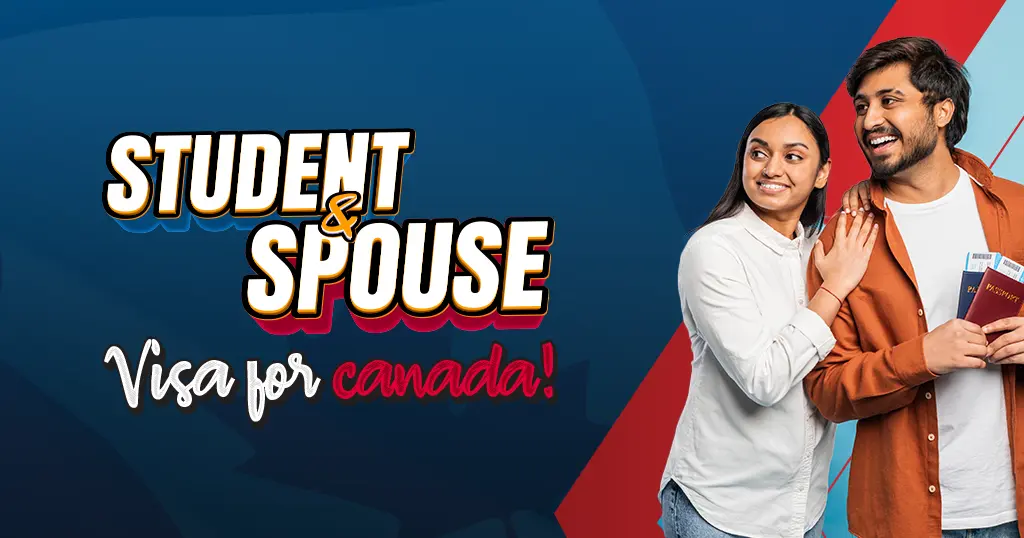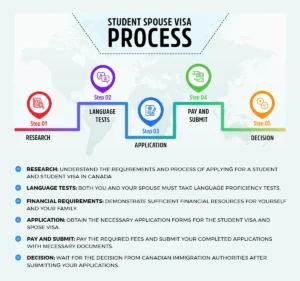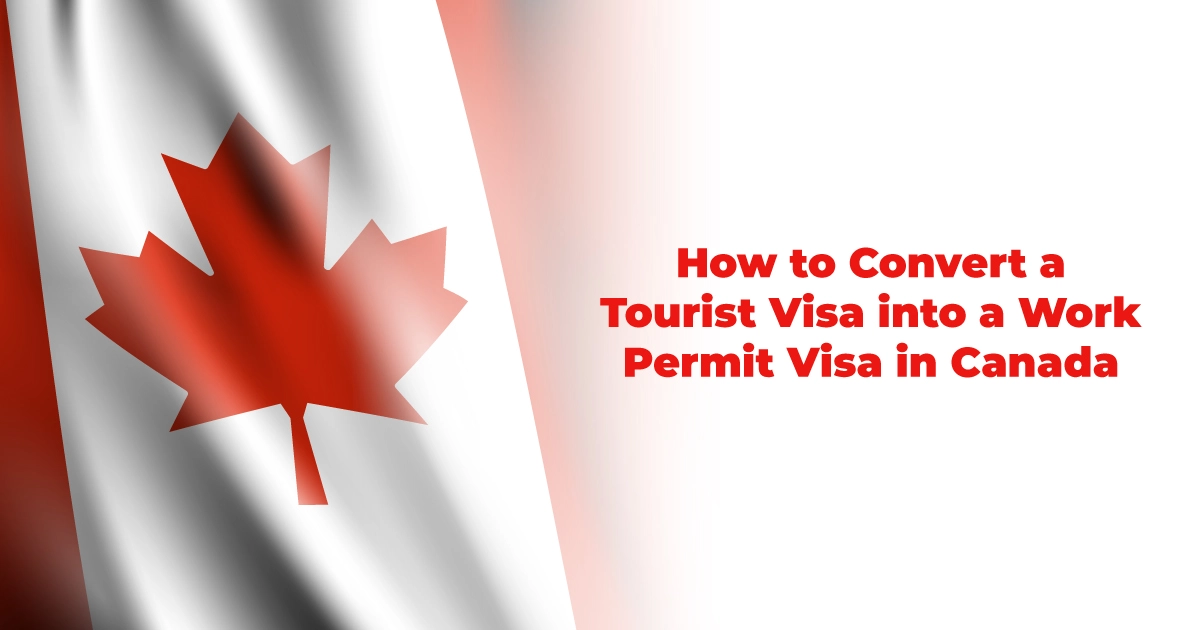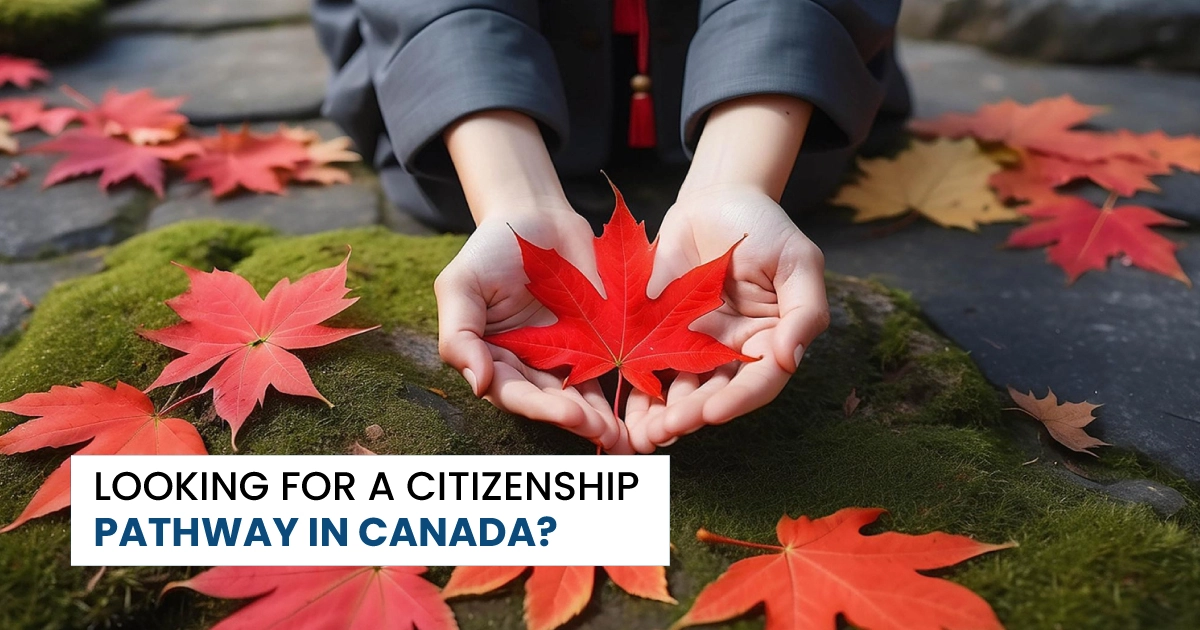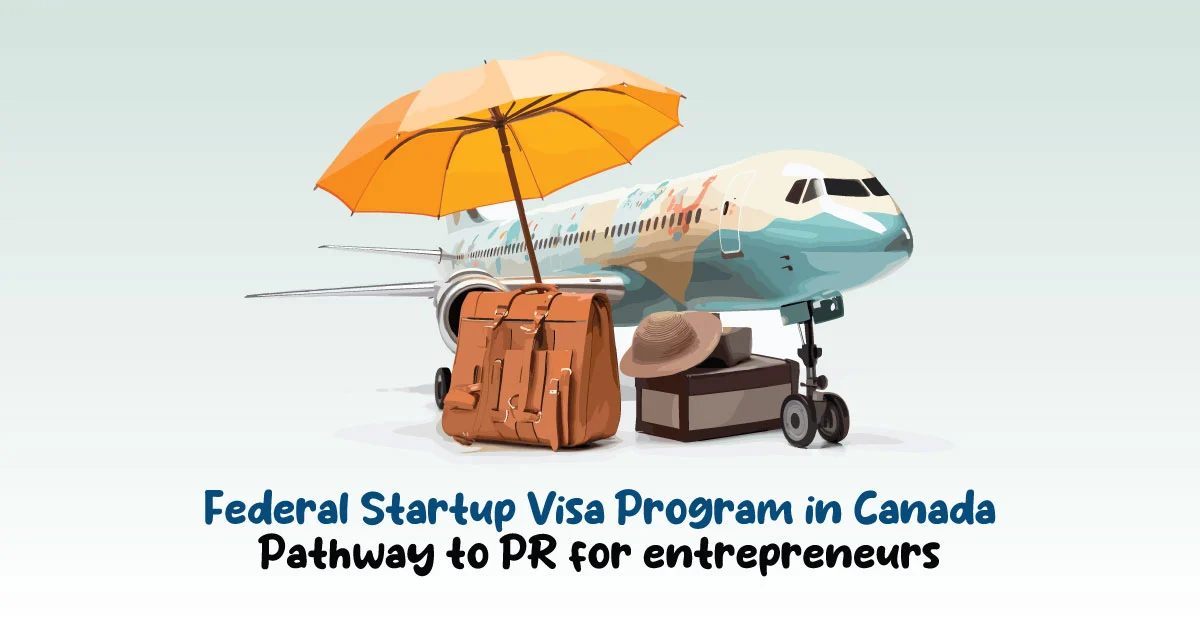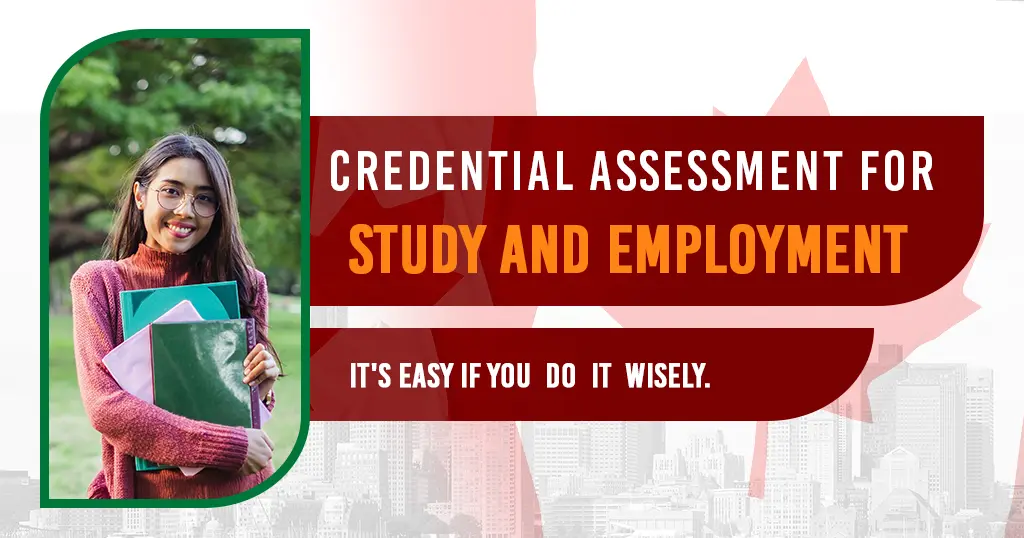Student and Spouse visa in Canada has many myths and facts. According to a report by IRCC (Immigration, Refugees and Citizenship Canada) in 2021, 60% of the total student visa applications were approved. There are even more than 90% chances for a spouse visa to be granted. Despite many challenges and difficulties, getting a student or spouse visa for Canada is highly possible. This possibility depends heavily on the authenticity and the justification of various important systematic procedures. There are unique and specific requirements for each type of visa.
Schooling System of Canada
The Canadian school system has both high standards and strong educational outcomes. The mainstream education system has three roots: elementary education, secondary education, and post-secondary education.
The elementary or primary education is considered from kindergarten to grade six or eight. The grades vary from province to province. In elementary education, student age varies from four to thirteen. The main focus of the primary stage is based on basic subjects, such as math, science, language arts, social studies, physical education, and art.
Secondary education starts in grade seven or eight and ends in grade twelve. The age group of this stage is twelve/thirteen to seventeen and eighteen. There is a broader focus along with mandatory and elective subjects. This stage is preparatory and can be considered as a base for post-education, or employment.
The post-secondary education is comprised of colleges, universities, and vocational schools. The program offers certificates, diplomas, undergraduate degrees, and graduate degrees (master’s and doctoral). It takes two to four years for undergraduate studies, 1-2 years for master’s, and more than three years for doctoral degrees.
Notably, there are private and public institutes. Public schools are funded by the government which is free for its residents. It is followed by the guidelines from different provinces with provincial curriculums. Additionally, tuition fees as well as private donations are there in private institutions. Private institutions have their set patterns of organizing with unique curricula and even sometimes offer smaller class sizes.
There are two mediums of language. The primary language of education and communication is English though the use of French is highly noticeable in the academic context. The use of English is preferable as it is the predominant language. The curriculum has both core subjects and electives to give full freedom to its students. The specialties of the Canadian school system are-
- Quality Education
- Accessibility
- Diversity
Student Visa Guideline for Canada
A student visa along with a study permit in Canada requires several important steps and proper documentation. Either someone can do it individually, or it can be done by an expert. The discussion below will be about eligibility requirements, the application process, to-do after the arrival of Canada, and some helpful resources.
The eligibility requirements start with the acceptance of a designated learning institution which is called DLI in Canada. Afterward, a student needs to clarify the financial support. Financial stability shows that someone has enough funds for his studies, living, and other necessities. A police clearance certificate might be needed. Moreover, there can be medical exams. Significantly, you need to prove that you will be tied to your home country after the expiration of your student visa.
The application process has important steps for a student visa. Firstly, you need all the necessary documents. As a result, a valid passport, letter of acceptance from DLI, proof of funds, passport-size photographs, Immigration Medical Examination (IME), Statement of Purpose (SOP), English or French language proficiency test results, and custodian declaration (for minors) are vital. Secondly, you will have to fill up the form with the application fee to the IRCC website. Biometrics and interview might be needed. Finally, you will have to wait for the processing until you get your Port of Entry (POE) Letter of Introduction.
There will be things to do after the arrival in Canada. You will have to focus on the completion of your enrolled program. Interestingly, you can work while studying. Significantly, to extend your stay, you must extend your study permit. You could qualify for a Post-Graduation Work Permit (PGWP), which enables you to work in Canada for a maximum of three years after you graduate. A trusted authority can make all these things easy for a student visa in Canada. Some useful info-
- IRCC Website
- Checking the DLI list
- Calculate functions and funds
Visit- La Vie Immigration for student and spouse visa consultation.
Spouse Visa Guideline for Canada
Obtaining a spouse visa for Canada involves sponsoring your spouse or common-law partner for permanent residency. The requirements for the sponsor are-
- You have to be registered under the Canadian Indian Act, a permanent resident of Canada, or a citizen of Canada.
- You have to be at least eighteen.
- You may need to clarify that you can financially support your spouse or partner. However, there is no specific income requirement to sponsor a spouse.
- You should not have been sponsored as a spouse yourself within the last 5 years.
The requirements for the sponsored person (Spouse) are-
- Must be at least 18 years old.
- Must be legally married to the sponsor or living together in a common-law relationship for at least 12 consecutive months.
- Must not be inadmissible to Canada (no criminal record or serious medical issues).
Firstly, visit the Immigration, Refugees, and Citizenship Canada (IRCC) website to get the application package. The package includes a checklist, forms, and instructions. Application to Sponsor, Sponsorship Agreement, and Undertaking [IMM 1344 are needed from the Sponsor. Generic Application Form for Canada [IMM 0008], Additional Family Information [IMM 5406], Schedule A – Background/Declaration [IMM 5669], and other region-specific forms if applicable are important for the sponsored person.
After you have gathered all the necessary documents, you will have to pay the fees and submit the application. Processing the application might take 12 months. If the application is approved, the sponsored person will receive a Confirmation of Permanent Residence (COPR) and a permanent resident visa (if applicable). Visit- La Vie Immigration for student and spouse visa consultation.
Can I Bring My Spouse and Dependent Children Under a Student Visa?
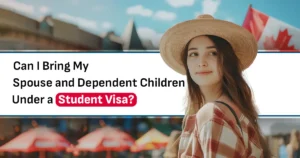
Your student visa is a must before applying for a spouse visa. You are allowed to bring your spouse into Canada if you hold a student visa. While you are studying, your spouse can apply for an open work permit, and they can work in Canadian firms.
The eligibility depends on two conditions. You must be a full-time student at a designated learning institution (DLI), and have a valid study permit. The application process is the same as the study permit application. Proof of your relationship (such as a marriage certificate), Your study permit and proof of enrollment at a DLI, and other standard documents required for a work permit application (such as a passport, photographs, etc.) will be necessary.
If you have kids, they can travel with you and attend Canadian schools without requiring their study permission. If you have kids, they do not require separate study permission to travel with you and attend school in Canada. Depending on their nationality, they can need an Electronic Travel Authorization (eTA) or a visiting visa.
Can My Spouse Work in Canada While I Study?
Sure, while you are studying in Canada, your spouse is allowed to work. They can work in Canada for any employer by applying for an open work permit. These two previously mentioned prerequisites also apply in this scenario. A DLI-listed institution is required of you, and a study permit is required. You must be enrolled in a DLI-listed institute as a full-time student.
The application process can be done either from outside of Canada or from inside Canada. Proof of your relationship (such as a marriage certificate), Your study permit along with proof of enrollment at a DLI, a copy of your spouse’s passport, photos of your spouse, and any additional documents requested by the immigration authorities might be significant for the application. Major benefits of spouse work in Canada, while you study, are-
- Employment flexibility
- No job offer required
- Support for family
Why Do People Avoid Applying for a Canada Study and Spouse Visa Together?
Some candidates think that submitting their applications concurrently will make them more scrutinized and may result in greater rejection rates. This worry stems from the possibility that immigration officials would consider the application to be more complicated or wonder if the family intends to return home at the end of the study term. Applying jointly may make it more difficult to prove that you have close links to your home country, which is a need for temporary visa acceptance. When applying jointly, you must demonstrate that you have enough money to maintain your spouse and any dependents while they are in Canada. Since this might be a substantial sum, some candidates may find it simpler to provide proof of the necessary funding if they submit several applications.
Although there are advantages to applying jointly for a spousal open work visa and a study permit, such as the possibility of maintaining family harmony and mutual support, some individuals choose to apply alone due to perceived dangers and pragmatic concerns. Since every scenario is different, the choice is frequently influenced by personal factors, financial preparedness, and strategic guidance obtained. It is advised to speak with an immigration advisor for personalized advice.
Importance of Work Permit
A work permit is the key to finding a student or spouse visa for Canada. A work permit can hugely benefit both the student and the spouse.
The door opens for employment opportunities. Financial independence, career advancement, and job flexibility can be mutually beneficial. As a result, there will be development in the skill enhancement. The work permit will support the economic expenses.
For the sake of both parties, a spouse with a student visa must have a work permit. It enables the spouse to follow professional possibilities, become financially independent, and provide for the family. It implies less financial strain for the student and more time to concentrate on their academics. All of these things work together to raise their standard of living, increase their chances of obtaining permanent residency, and make their assimilation into Canadian culture easier.
La Vie immigration can guide you with the rightful authority in your journey to get a student visa in Canada. Book an appointment for Canada Immigration Consultation- La Vie Immigration.
